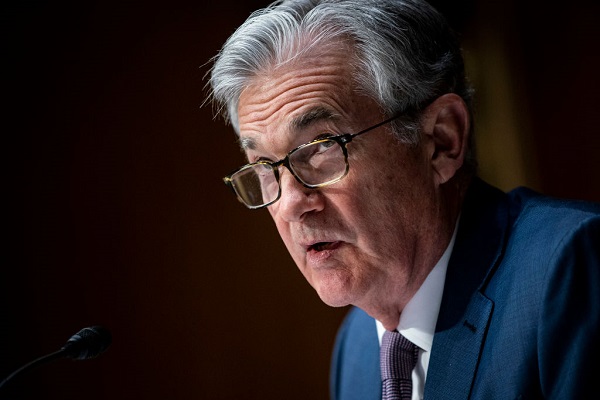Bond fund manager sounds alarm over central bank rate rise risk
If central banks move too quickly, Bezalel says, they risk adding to several other economic headwinds.
23rd November 2021 10:38
by Tom Bailey from interactive investor
If central banks move too quickly, Bezalel says, they risk adding to several other economic headwinds.

Central banks run the risk of overreacting to inflation, according to Ariel Bezalel, head of strategy for fixed income at Jupiter.
The past year has seen inflation fears come to the fore across developed economies. In the UK, inflation in October surged to a 10-year high of 4.2%, more than double the Bank of England’s target rate of 2%. Meanwhile, US inflation rose by more than 6% in October.
Inflation is widely expected to remain above target in 2022, and is keeping investors on their toes. Global fund managers have consistently cited inflation as the main risk to markets over the past few months.
- Professional investors haven’t been this bullish about shares since 2013
- Inflation watch: cost of living surges to 10-year high
All this has raised the prospect of central banks tightening monetary policy, including potentially increasing interest rates, to try and bring inflation down. However, this is a potential risk to the post-pandemic global economic recovery. As Bezalel notes: “There is a real risk that inflation fears force central banks to increase the pace of tightening just as the global economy slows down. This could cause a setback to recovery next year.”
Bezalel, manager of Jupiter Strategic Bond, a member of interactive investor’s Super 60 list, further points out: “Central banks are…under enormous pressure to normalise monetary policy, and this pressure is increasing as inflation numbers continue to come in ahead of target.”
While monetary policy remains very loose by historic standards, there are already nascent signs of tightening. Bezalel says: “The pace of central bank balance sheet expansion has pretty much stalled out. Also, money supply growth has rolled over in all major economies.”
According to Bezalel, the inflation we are seeing is transitory, driven by factors relating to economies re-opening post-pandemic. He points out that while supply chain problems are more complicated than previously thought and will continue into the new year, “they won’t be with us forever”. Likewise, disruptions to the labour market, another driver of inflation, should also ease up.
He says: “Peeling back the surface, the average cost of labour per unit of output hasn’t actually increased. I expect to see wage pressures tail off as more and more people come back to work. In fact, in the US, broadly speaking, productivity has been comfortably outpacing real compensation per hour.”
- How fund investors can protect and profit from higher interest rates
- Video: Peter Schmeichel - The ii Family Money Show
If central banks move too quickly, Bezalel says, they risk adding to several other headwinds likely to hold back the economic recovery. He notes: “Looking ahead into 2022, I see significant headwinds for the global economy as Chinese demand slows and some of the tailwinds of fiscal policy and pent-up demand that have sustained the economy since the pandemic start to fade.”
Of particular concern to Bezalel is the outlook for the Chinese economy. He points to recent trouble in China’s real estate sector. He notes: “The sector, at approximately $60 trillion (£44.8 trillion), is by some measures the world’s largest asset class. More importantly, 80% of Chinese household wealth is concentrated in real estate, compared with just 15% in the US, and 60% in Japan at the heights before the Japan property crash in the late 1980s. I expect this real estate crisis to ripple out across the rest of the world.”
One affect has been Chinese import demand slowing. Bezalel says that there are signs of a slowdown in growth in Eastern Europe, which acts as a bellwether for Chinese demand due to so much western European production being located in the region. He also notes that we are already seeing a slowdown in Germany, for which China is a big market. While it is hard to gauge how much this is the result of renewed Covid fears or a slowdown in China, it needs to be watched closely. Adding rate rises and monetary tightening would exacerbate these problems.
These articles are provided for information purposes only. Occasionally, an opinion about whether to buy or sell a specific investment may be provided by third parties. The content is not intended to be a personal recommendation to buy or sell any financial instrument or product, or to adopt any investment strategy as it is not provided based on an assessment of your investing knowledge and experience, your financial situation or your investment objectives. The value of your investments, and the income derived from them, may go down as well as up. You may not get back all the money that you invest. The investments referred to in this article may not be suitable for all investors, and if in doubt, an investor should seek advice from a qualified investment adviser.
Full performance can be found on the company or index summary page on the interactive investor website. Simply click on the company's or index name highlighted in the article.